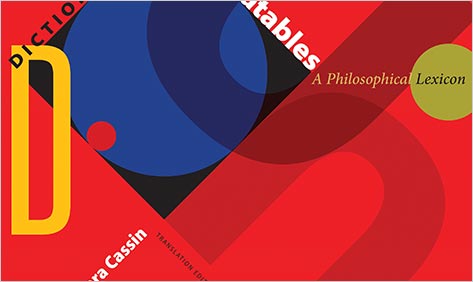by MATTHEW BATTLES

A friend once remarked that the Korean language has no word for salad. Instead, it uses saleodu, a Korean-inflected version of the English word. It occurred to me that by that logic, there’s no word in English for salad, either — “salad” being derived from insalata from the Latin, where it names a salted dish. Defying the threat of unintelligibility, words emigrate quite happily from language to language. Loanwords, as etymologists call them, take root in a new language without much modification, retaining the flavor and frisson of their original tongue. Sometimes words find their way by assimilation, taking up residence as “calques” or direct translations from one language to another; “scapegoat” is an example, remade in rough, apostrophe-sprouting sixteenth-century English by William Tyndale from the Hebrew text of Leviticus. “Calque” is one such loanword; “loanword” itself, from the German Lehnwort, is also a calque.
Although purists and prescriptivists are always seeking the aboriginality of language, the tongues themselves are promiscuous, happy in one another’s company. “All words are fossil poetry,” Emerson declared, and by the same light, all words belong to someone else. Any cosmopolitan discourse makes use of the untranslatable, comprising a buzzing, evanescent community of idiolects, jargons, and lingue franche. The Internet is, of course, a marvelously efficient loanword generator. Take a term like “Net neutrality,” which finds itself abducted into debates across formerly loanword-resistant languages. From the French edition of PC World online, for example, we have the following usage: “Le principe de Net Neutrality est simple: Internet ne doit pas favoriser, ni pénaliser, certains contenus par rapport aux autres” (where “Internet,” too, is an untranslatable). At Le Figaro, we find the untranslatable corralled in a parenthetical: “Cette question, qu’on appelle la «neutralité des réseaux» (Net neutrality), est récurrente depuis plusieurs années sur le web.” This usage is found at Le Figaro’s tech blog — the title of which is “Suivez le Geek.”
Barnes and Noble for more
